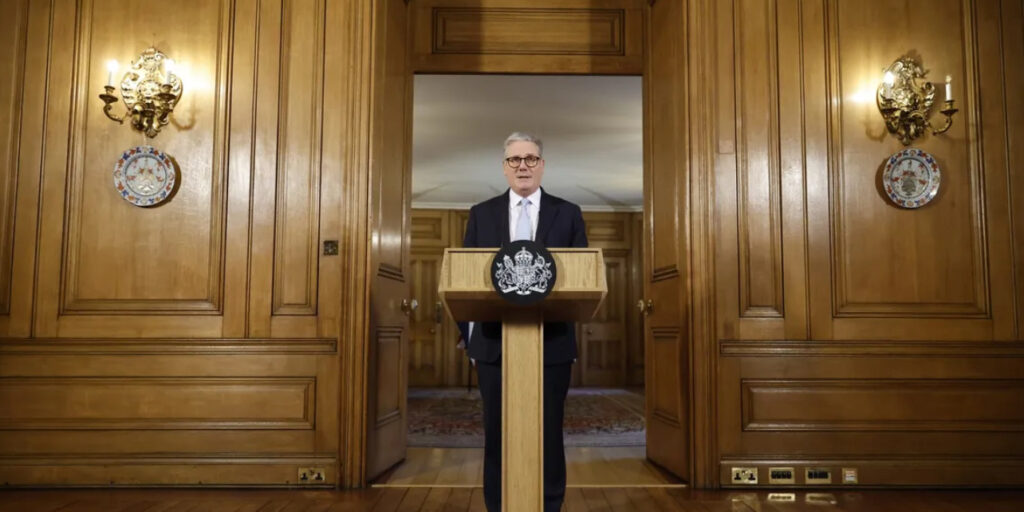Prime Minister Keir Starmer is set to unveil a comprehensive “Plan for Change” in the coming week, detailing ambitious targets for the UK economy, healthcare, and crime reduction.
The announcement aims to provide clarity on the five core missions he championed during Labour’s landslide general election victory earlier this year.
In a statement released on Saturday, Starmer’s office confirmed that the plan would establish “measurable milestones” to drive “real, tangible improvements” for working people across the UK.
Starmer emphasised the importance of meaningful progress, stating, “Mission-led government does not mean picking milestones because they are easy or will happen anyway. It means relentlessly driving real improvements in the lives of working people.”
Labour’s Rocky Start
Despite Labour’s decisive electoral win, Starmer’s administration has faced a turbulent start.
Revelations of ministers accepting perks while in opposition, coupled with controversial tax hikes and spending cuts by Chancellor Rachel Reeves, have sparked discontent among key voter groups, including pensioners, farmers, and businesses.
These issues have rattled financial markets and sent Labour’s poll ratings plummeting.
The economic outlook remains grim, with growth stagnating amid ongoing fiscal uncertainty.
Higher debt servicing costs are further squeezing Reeves’ budget, potentially leading to additional cuts in the spring to meet Labour’s fiscal rules.
Adding to the pressure, Starmer recently reshuffled his team, replacing Chief of Staff Sue Gray with top political adviser Morgan McSweeney.
However, the government suffered a blow on Friday when Transport Secretary Louise Haigh resigned over past fraud convictions.
Focus on Accountability and Progress
While specific targets have yet to be disclosed, Starmer’s office confirmed they will be revealed later this week. These targets will focus on economic growth, reducing crime, tackling NHS backlogs, improving education, boosting homebuilding, and advancing the UK’s clean energy ambitions.
Starmer underscored the importance of accountability, asserting that the targets would allow working people to hold the government to account.
Early reports suggest these goals may include raising living standards, cutting NHS waiting times, improving educational outcomes, and increasing disposable income.
On climate change, Labour is expected to present clear benchmarks to position the UK as a leader in clean energy.
Tackling Fiscal Challenges
Labour’s efforts to stabilise public finances have sparked backlash, with Reeves implementing tax increases and spending cuts to address a £22 billion budget shortfall inherited from the previous Conservative government.
Notable measures include stripping winter fuel payments from 10 million pensioners and raising national insurance, prompting widespread criticism.
A recent hike in inheritance tax on agricultural property led to mass protests by farmers in London last month.
Despite these challenges, Starmer remains resolute. “Some may oppose what we are doing, and no doubt there will be obstacles along the way,” he said.
“But this government was elected on a mandate of change. Given the unprecedented challenges we’ve inherited, we won’t succeed by simply doing more of the same. Our plan reflects the priorities of working people and pairs investment with innovation and reform.”
As Starmer prepares to unveil his detailed roadmap, all eyes will be on how Labour’s ambitious targets can translate into tangible benefits for the British public.


